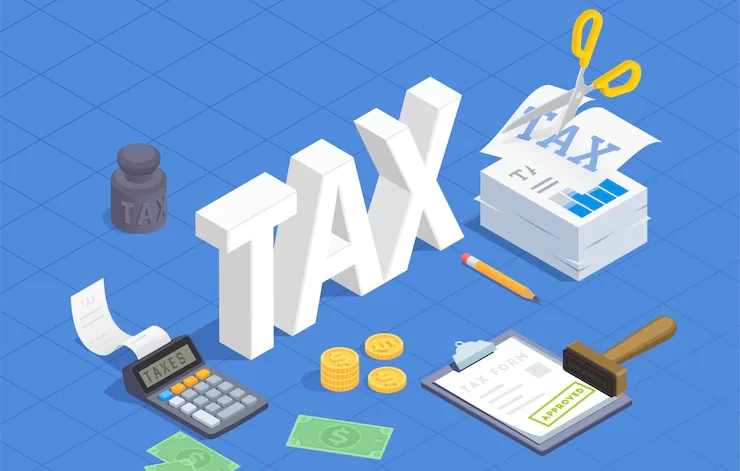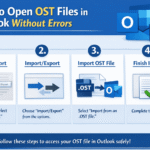Paystub 101: Understanding Your Paystub and Its Impact on Your Taxes
A paystub, also known as a paycheck stub or earnings statement, is a crucial document for every employee. It provides detailed information about your earnings, deductions, and net pay for a specific pay period. Understanding your paystub is essential not only for managing your finances but also for ensuring accurate tax filings. This article will break down the components of a paystub, explain how it affects your taxes, and provide tips on what to look for to avoid common mistakes.
Components of a Paystub
A paystub typically includes the following sections:
- Personal and Employment Information:
- Employee Name and Address: Your personal identification details.
- Employer Name and Address: Information about your employer.
- Pay Period: The specific period for which you are being paid, such as bi-weekly or monthly.
- Earnings:
- Gross Pay: The total amount earned before any deductions. This can include regular wages, overtime pay, bonuses, and other forms of compensation.
- Hourly Rate and Hours Worked: If you are an hourly employee, this section will show your hourly wage and the number of hours worked during the pay period.
- Deductions:
- Federal Income Tax: The amount withheld from your paycheck for federal income taxes. This is based on your W-4 form and tax bracket.
- State Income Tax: The amount withheld for state income taxes, applicable if your state has an income tax.
- Social Security and Medicare Taxes: Also known as FICA (Federal Insurance Contributions Act) taxes, these are mandatory payroll taxes that fund Social Security and Medicare programs.
- Other Deductions: This can include contributions to retirement plans (e.g., 401(k)), health insurance premiums, union dues, and any other voluntary or mandatory deductions.
- Net Pay:
- Net Pay: The amount you take home after all deductions are subtracted from your gross pay. This is the actual amount deposited into your bank account or given to you as a check.
- Year-to-Date (YTD) Totals:
- YTD Earnings: The cumulative total of your earnings from the beginning of the year to the current pay period.
- YTD Deductions: The cumulative total of all deductions taken from your paycheck since the start of the year.
- YTD Net Pay: The cumulative total of your net pay from the start of the year.
Impact on Your Taxes
Your paystub has a direct impact on your taxes in several ways:
- Income Reporting: The information on your pay stub is used to report your income to the IRS and state tax authorities. It is essential to ensure that your reported income matches your paystub to avoid discrepancies that could trigger an audit.
- Withholding Accuracy: The federal and state income taxes withheld from your paycheck are based on the information you provided on your W-4 form. If too little tax is withheld, you may owe money when you file your tax return. If too much is withheld, you may receive a refund. Regularly reviewing your paystub can help you ensure that the correct amount is being withheld.
- Social Security and Medicare Contributions: The FICA taxes withheld from your paycheck are contributions to Social Security and Medicare. These contributions are crucial for your future benefits. The amounts withheld should match the rates set by the government (6.2% for Social Security and 1.45% for Medicare as of 2024).
- Retirement Contributions: If you contribute to a retirement plan, such as a 401(k), these contributions are typically deducted from your paycheck before taxes, reducing your taxable income. This can lower your tax liability for the current year.
Common Paystub Errors and How to Avoid Them
Errors in your paystub can lead to problems with your taxes and personal finances. Here are some common mistakes to watch for:
- Incorrect Personal Information: Ensure that your name, address, and Social Security number are correct. Incorrect information can lead to issues with your tax filings and Social Security benefits.
- Incorrect Pay Rate or Hours Worked: Verify that your hourly rate or salary is accurate and that the number of hours worked is correctly recorded. Mistakes in these areas can lead to underpayment or overpayment.
- Incorrect Tax Withholding: Check that the federal and state income taxes withheld match the amounts you expect based on your W-4 form. If the withholding is incorrect, update your W-4 and notify your employer.
- Missing or Incorrect Deductions: Ensure that all deductions, such as health insurance premiums, retirement contributions, and other voluntary deductions, are accurately recorded. Mistakes here can affect your benefits and tax liability.
- Misreported Overtime or Bonuses: Confirm that any overtime pay or bonuses are correctly calculated and reported. These earnings can significantly impact your taxes and net pay.
Tips for Managing Your Paystub
To stay on top of your finances and ensure accurate tax filings, consider the following tips:
- Regularly Review Your Paystub: Make it a habit to review your paystub each pay period. This will help you catch any errors early and ensure that your earnings and deductions are accurately recorded.
- Keep Good Records: Save your paystubs for at least one year, and consider keeping digital copies for easy access. These records can be useful for resolving any discrepancies and for filing your taxes.
- Understand Your Benefits: Familiarize yourself with the benefits provided by your employer, such as health insurance, retirement plans, and other deductions. Understanding these benefits can help you make informed decisions about your finances.
- Adjust Your Withholding as Needed: Life changes, such as getting married, having a child, or changes in income, can affect your tax liability. Review and update your W-4 form to ensure that the correct amount of tax is withheld from your paycheck.
- Consult a Tax Professional: If you have complex financial situations or are unsure about your tax withholding, consider consulting a tax professional. They can guide you in optimizing your withholding and ensuring accurate tax filings.
Conclusion
Understanding your paystub is crucial for managing your finances and ensuring accurate tax filings. By regularly reviewing your paystub, verifying the accuracy of your earnings and deductions, and keeping good records, you can avoid common mistakes and ensure that your taxes are correctly calculated. Staying informed about your paystub and its components will empower you to make better financial decisions and stay on top of your tax obligations.

















